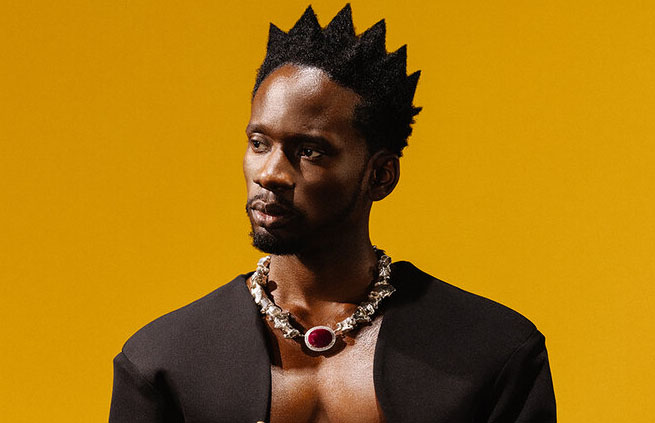
“I’m Not the First!” – Blessing CEO Claps Back at Critic Over Therapist-Client Romance Scandal

In yet another heated social media face-off, Nigerian relationship therapist and media personality, Blessing Okoro, widely known as Blessing CEO, has fired back at a critic who accused her of professional misconduct, claiming she would have lost her therapist license abroad for engaging in a romantic relationship with a client. The comment, which came from a user identified as @mercyinfull, triggered an online war of words that has since captivated social media and reignited conversations around ethics, love, and boundaries in the field of mental health.
The critic didn’t hold back, writing: “It can only happen in Nigeria… A therapist will be stripped off her license if this ever happened in America or other well-regulated countries. Therapist and client romantic relationship is the fastest way to get your license revoked by Board of Behavioral Sciences (BBS). You are beautiful regardless.” The pointed jab, wrapped in a backhanded compliment, insinuated that such an affair would be not just frowned upon, but outright punishable in professional mental health settings across developed nations.
But Blessing CEO, never one to shy away from online battles, wasted no time in delivering a stinging rebuttal. She replied: “@mercyinfull a lot of you are just ignorant. Many people who are married today married their client. Because yours with your own did not lead to marriage doesn't make it a law.” Her response, dripping with defiance, has stirred both applause and criticism from fans and observers.
The controversy began brewing shortly after rumors circulated that Blessing CEO was romantically involved with a former client—allegedly someone she once helped through a difficult phase. While she has neither confirmed nor denied the nature of the relationship in full detail, her comments appear to support the notion that she sees no wrongdoing in the development of romantic relationships between consenting adults, even if one of them was formerly under her care as a therapist.
However, critics argue that this is not merely a matter of personal preference or cultural context. In many countries, including the United States, Canada, and the UK, strict ethical codes prohibit romantic or sexual relationships between therapists and clients—even after therapy has ended—due to the inherent imbalance of power and the potential for manipulation or emotional dependency. Violating such codes could result in immediate license suspension or permanent revocation.
But Blessing CEO appears to operate by a different playbook, one rooted in Nigeria’s relatively underregulated mental health and counseling industry. With no unified board or standard licensing body for therapists in the country, the boundaries are often blurred. This vacuum allows for a more flexible, albeit controversial, approach to therapy and personal conduct among its practitioners.
Blessing’s brand, after all, is built on shock value, unfiltered truths, and bold declarations. She is no stranger to courting public opinion, often thriving in the thick of drama, scandal, and the occasional legal spat. Her rise to fame came through a mixture of relationship advice, raw commentary, and explosive personal confessions, including her infamous involvement in the IVD-Bimbo saga which had her facing police investigations and widespread media scrutiny.
Now, this latest dispute has added more fuel to the fire. While some supporters have praised her courage and authenticity—arguing that love can bloom anywhere and that clients are human too—others are calling for stricter regulations in Nigeria’s therapy space to prevent potential abuse of power.
“She’s confusing coaching or motivational speaking with actual therapy,” said one concerned social media user. “A therapist isn’t just a friend with good advice. It’s a professional relationship that demands respect and distance.”
Others, however, rallied around her, insisting that moral policing and unrealistic standards imported from the West have no place in African society. “Let’s stop pretending Nigeria is America,” wrote another fan. “Therapists here are more like life coaches. Blessing CEO has helped a lot of people, and if she finds love along the way, who are we to judge?”
For Blessing CEO, this incident is just another moment in her ongoing saga of defiance and redefinition. Her brand thrives on disruption—on challenging norms, provoking thought, and dragging taboo conversations into the public square. Whether you love her or loathe her, she has carved a space in the Nigerian social media ecosystem that cannot be ignored.
Still, the issue raises a bigger question: should Nigeria move toward a more regulated therapeutic environment? As mental health awareness grows and more people seek professional help, the need for ethical standards becomes increasingly important. Stories like this one force the public to examine where the line between professionalism and personal life should be drawn—and whether that line should even exist at all in a space where regulation is minimal and titles like “therapist” are often self-assigned.
As the drama unfolds, one thing is clear: Blessing CEO is not backing down. In fact, she’s doubling down, standing firm in her belief that love can happen anywhere—even in the most unconventional of places.
“I’m not the first,” she declared in her follow-up video posted to her Instagram stories. “Many women have married their clients. I just have the guts to own it. The rest of you are too scared to admit it.”
Whether her actions reflect bold self-expression or ethical recklessness is a matter of ongoing public debate. But if there’s one thing we can count on, it’s that Blessing CEO won’t be silenced anytime soon. Love her or hate her, she’s not afraid to shake the table—and maybe even dance on it too.


